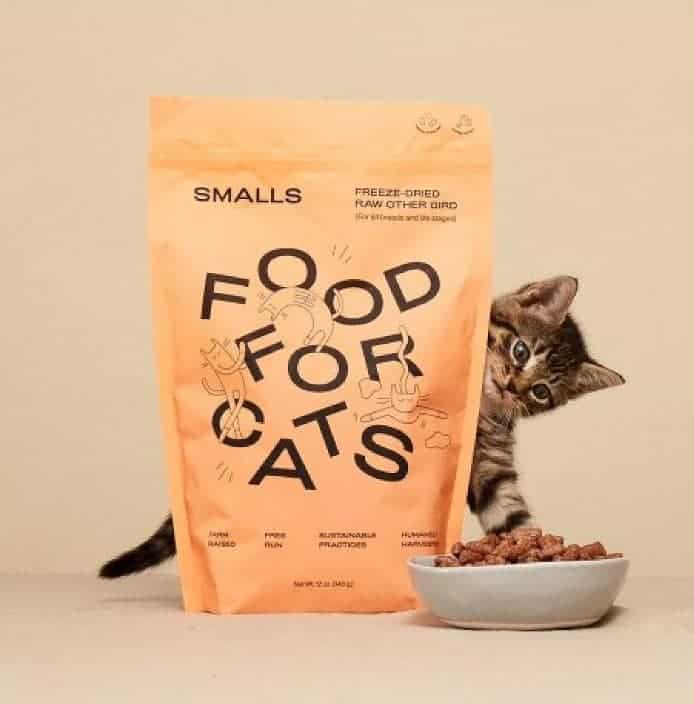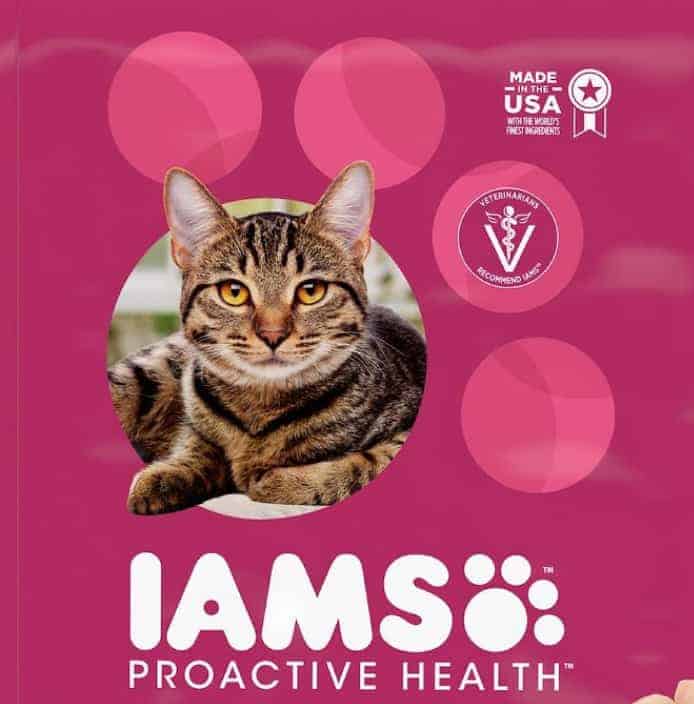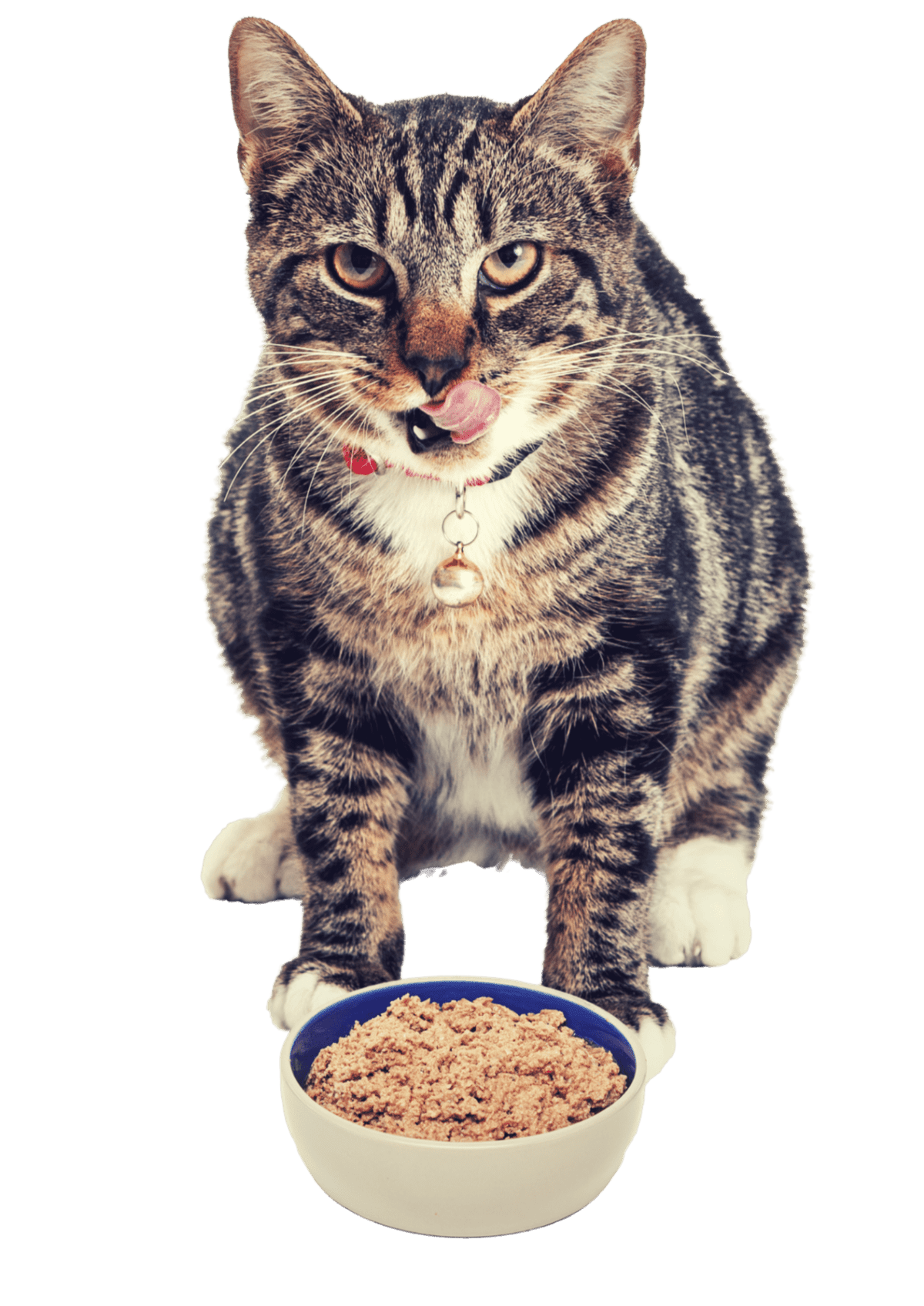Are cats omnivores and the simple answer to this question is No. But I would insist that you read the entire article to find out why!
When you get a new cat or kitten into your house, the first thing you do is Google “What’s a cats diet”.
The truth is, there are so many different types of diets, and they all have their pros and cons.
As a medical student and having done extensive research on this subject, I am sharing my thoughts with you in this blog post.
I am going to cover topics such as the distinctions between omnivores as well as carnivores.
The dietary requirements of pet cats in the realm of vegan food and the knowledge to help you select the most suitable diet for your cat.
Are you in?
So, let's get started.
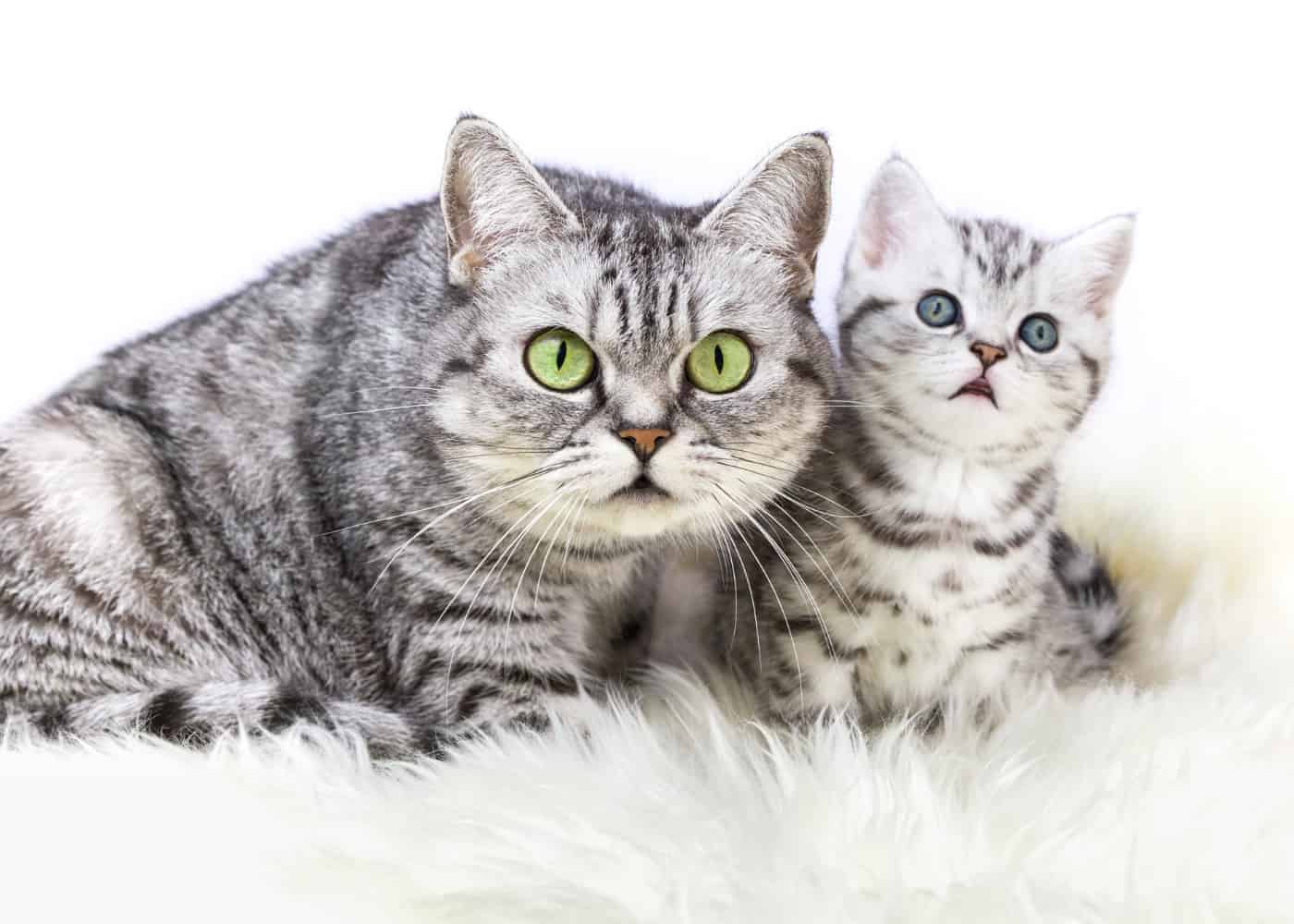
Cats are one of the most mysterious creatures on the planet. They have a unique combination of behaviors that can range from aloof and independent to affectionate and clingy.
With so much mystery surrounding cats, one of the most common questions people have is are cats omnivores?
The answer is not as straightforward as it may seem. Cats are biologically classified as obligate carnivores, meaning they are designed to eat primarily meat and animal products.
However, cats have been known to eat some plant-based foods, leading some to believe they are omnivores.
To understand the truth about cats eating meat, it is important to understand their biology and their nutritional needs.
Overview of Cat Biology
Cats are complex creatures, and to understand them fully, it is important to understand their anatomy and physiology.
Cats’ anatomy includes their long muscular body, their retractable claws, and their sensitive whiskers. Cats’ physiology includes their acute sense of hearing and smell, their ability to jump high, and their night-vision.
The digestive system of cats is well-suited for a carnivorous diet.
Their digestive tracts are short and efficient, allowing them to break down and absorb nutrients quickly. Cats require high-quality nutrition to maintain their health.
Cats’ Anatomy and Physiology
Having explored the basics of cats’ nutrition, let's now take a closer look at cats’ anatomy and physiology.
A cat's body is made up of muscles that are strong and flexible, allowing them to perform remarkable feats of agility and balance.
They have an average of 244 bones, a majority of which are in their tail and spine. The cat's skeleton is designed for both speed and agility, as the bones are lightweight and slender.
Cats also have incredibly powerful legs, allowing them to jump up to five times their own height.
Cats have a unique digestive system, with a shorter digestive tract than other carnivores. This allows them to absorb the nutrients they need from their food more efficiently. Cats are also able to convert proteins into energy more easily than other carnivores.
Cats are obligate carnivores, meaning their bodies require a diet that is primarily made up of animal proteins. The amino acid taurine is essential for cats, and must be supplemented in their diet.
Cats’ Digestive System
Unveiling the inner workings of a cat's body, let's take a closer look into their digestive system.
The cat's digestive system starts with their °mouth°, which is where they take in food. The tongue, covered in small spines called papillae, helps guide the food down the throat. This is where the teeth come in, helping to break the food down into smaller pieces. The cat has a total of 30 teeth, including four canine teeth to help tear up food.
Food then enters the stomach. In the stomach, the food mixes with digestive enzymes and hydrochloric acid to break the food down further. After this, the food enters the small intestine. Here, the food is further broken down and the nutrients are absorbed by the body.
Lastly, the undigested food enters the large intestine, where it is passed out of the body as waste.
Cats’ Nutritional Needs
Having understood the basics of cats' anatomy and physiology, let us now dive into understanding cats' nutritional needs.
Cats are obligatory carnivores, meaning that they require nutrients found only in animal tissue for their survival. This makes nutrition an important aspect of a cat's health.
A cat's digestive system is highly specialized and adapted to extract energy and nutrients from animal tissue. As such, cats require specific nutrients that are not found in plant material. The primary nutrients that cats need are proteins, fats, carbohydrates, water, minerals, and vitamins.
Cats need proteins for growth, reproduction, and maintenance of body tissues. Proteins provide cats with energy and essential amino acids that the body cannot synthesise. Fats provide energy, essential fatty acids, and aid in the absorption of fat-soluble vitamins. Carbohydrates are not essential for cats, but they can be a source of energy.
The Theory of Cats as Obligate Carnivores
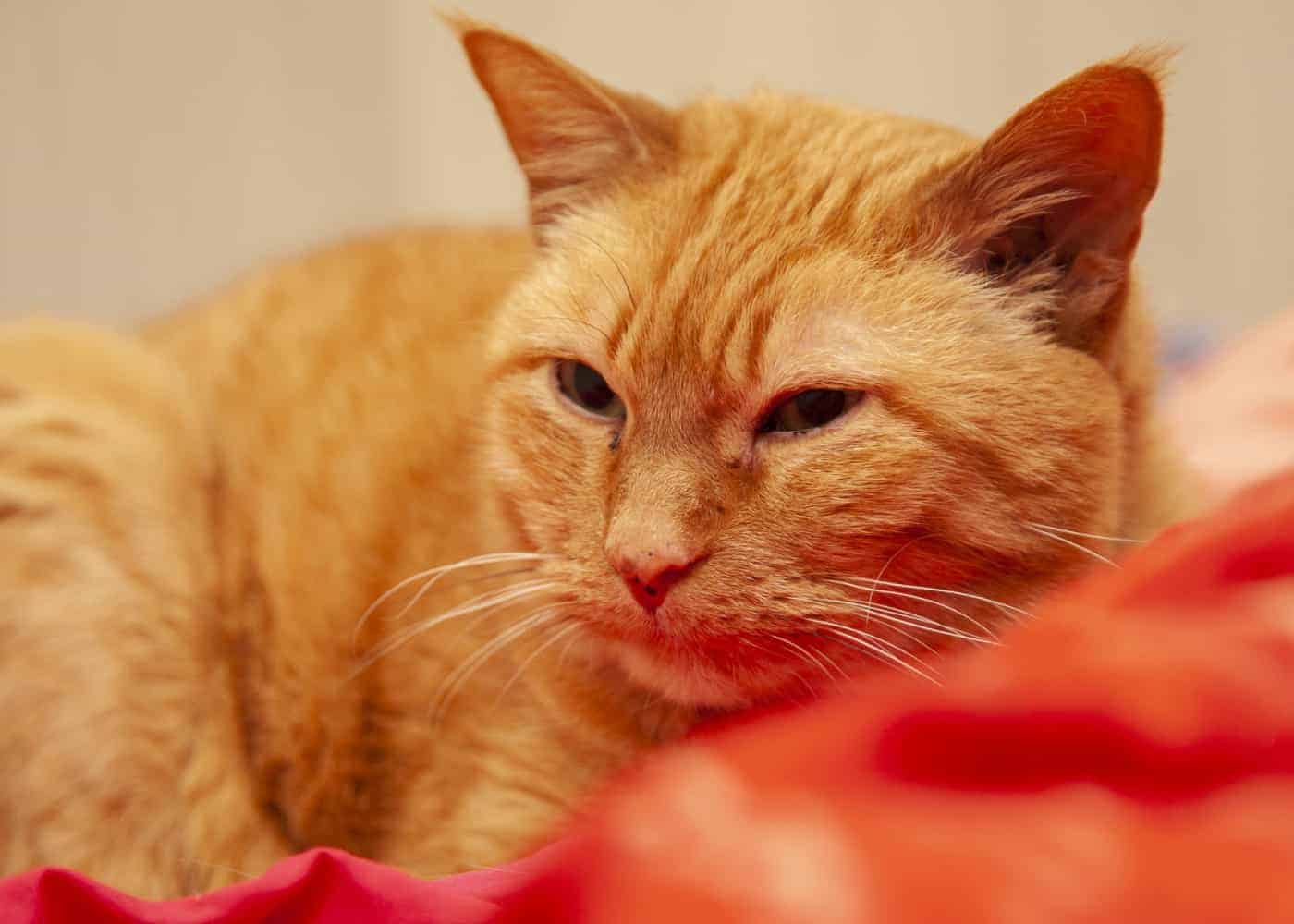
Cats have been recognized as obligate carnivores since their evolution began.
Their hunting and eating habits have been traditionally associated with their biological preferences, which include being meat-eaters. This preference has been documented in archaeological findings, which have proven that cats have been consuming raw meat for thousands of years.
Cat Dietary Needs are of critical importance as they must consume a diet that is rich in proteins and amino acids, along with essential fatty acids and minerals, to maintain a healthy lifestyle. Cats are unable to produce some essential nutrients that are only found in meat-based diets, specifically the amino acid taurine.
Cats’ Evolutionary History
Having explored the biology of cats, let's now turn our attention to their evolutionary history.
It is believed that cats have been around for more than 12,000 years, evolving from the African wildcat. During this time, cats have adapted to their environment, developing behaviours and preferences that are still present in cats today.
For example, cats are known for their remarkable hunting skills and strong instinct for meat. This instinctual behavior has likely been developed over thousands and thousands of years as cats became more and more attuned to their environment and prey.
Cats are also believed to have originated in the Middle East, where their diet was vastly different from that of the African wildcats.
In the Middle East, cats were likely exposed to a variety of meats, which explains why cats today still have an instinctual preference for meat.
Cats were also exposed to grains, which may explain why some cats today will eat grains, albeit in smaller quantities than their preferred meat.
Cats’ Hunting and Eating Habits
From their predatory nature to their sharp sense of smell, cats have a special affinity for hunting and eating meat. Their special set of skills, combined with a heightened sense of smell, allows cats to detect and identify potential prey from a distance. With an impressive hunting success rate, cats are able to quickly and efficiently catch prey and eat it.
Cats have a strong instinct for meat, as evident by the fact that they rarely eat plant matter.
This instinctive preference for meat is a result of their evolution, as cats have been carnivores for millions of years. In the wild, cats have relied on meat as their main source of nutrition, and this continues to be true in the modern day.
Cats use their agility and sharp reflexes to pounce on their prey, allowing them to capture and eat their food quickly.
They also have a tendency to eat their prey in one sitting, consuming the entire animal in one go.
Cats’ Biological Preferences
This is evident in cats' biological preferences, which are deeply embedded in their evolutionary history as obligate carnivores.
Cats have developed a highly specialised digestive system that is designed to extract essential nutrients from a diet that is rich in proteins and fats, and low in carbohydrates.
They have sharp teeth and claws that are designed for capturing and consuming prey, as well as a strong sense of smell that allows them to detect and track potential prey.
Cats also possess a unique set of taste buds that are more sensitive to certain flavors found in meat than in other foods.
This sensitivity is even more pronounced in kittens, whose taste buds are designed specifically to encourage them to consume the proteins and fats that they need to grow. Cats therefore have an instinctive preference for the taste of meat, as well as an inability to digest plant-based diets efficiently.
The Theory of Cats as Omnivores
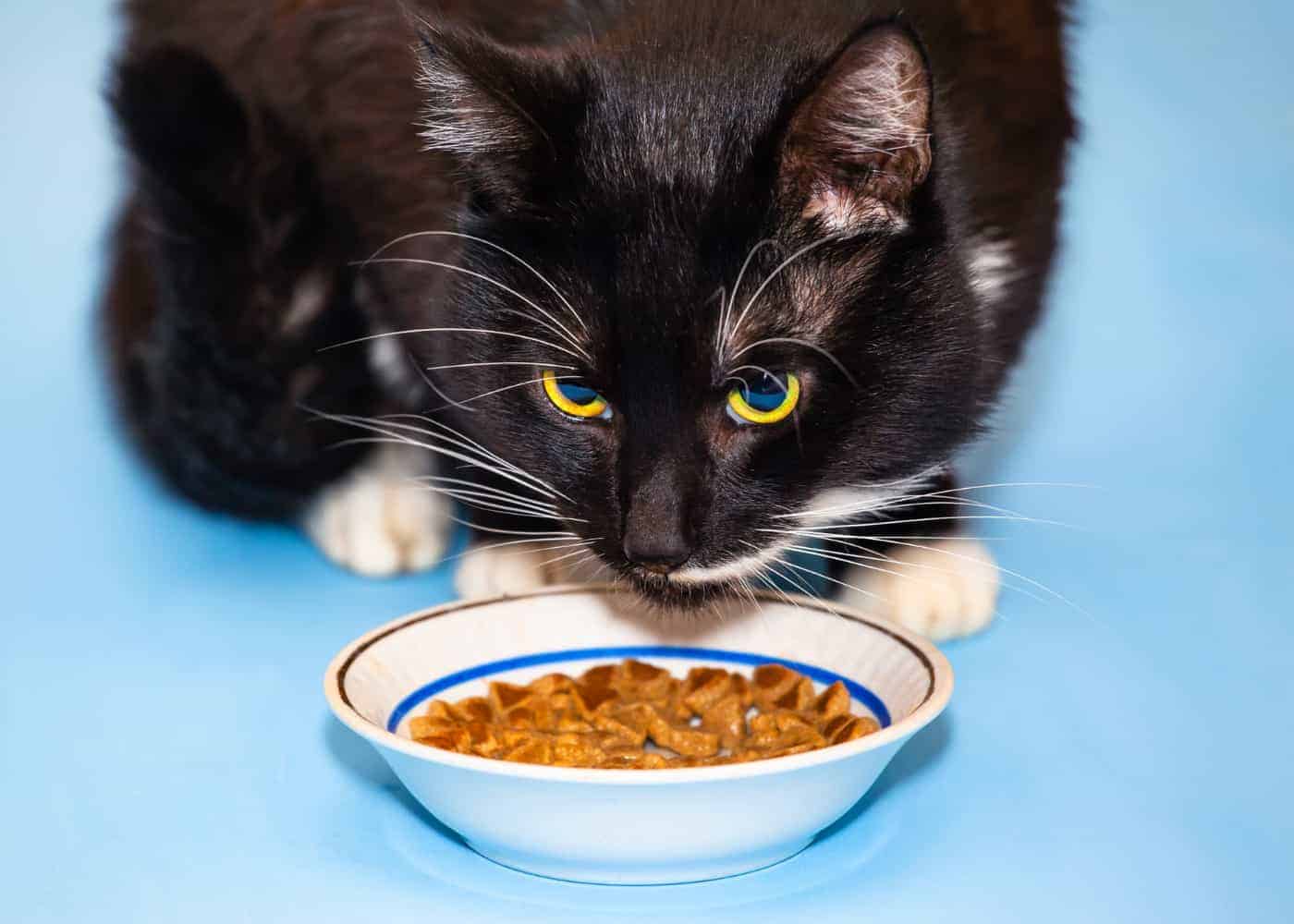
The theory of cats as omnivores is a fascinating one, as it opens up dietary possibilities for cats that could benefit their health.
To understand the theory better it is important to examine the cats' ability to digest plant matter as well as their willingness to eat plants. Additionally, it is important to understand cats' dietary needs in captivity, as well as their ability to digest meat.
Cats have the capacity to digest plant matter, but they do not digest it as efficiently as they do meat.
Cats’ Ability to Digest Plant Matter
Contrasting the notion that cats are obligate carnivores, some experts are of the opinion that cats are actually omnivores.
Cat owners have often observed that cats will eat plants, and as such, one must consider the possibility that cats have the ability to digest plant matter.
To better understand cats' ability to digest plant matter, we must consider the anatomical structure of the feline digestive system.
Cats possess the same basic digestive organs as other mammals, including the stomach and small intestine, which are essential for breaking down and absorbing nutrients from food. However, cats have shorter intestines than humans or other omnivores, which suggests they may not be as adept at digesting plant matter.
However, while cats may not be able to digest plant matter as effectively as other animals, it is not impossible. Cats have been known to eat a variety of fruits and vegetables, and may even benefit from the vitamins and minerals contained in these foods.
Cats’ Willingness to Eat Plants
Intriguingly, cats’ willingness to eat plants may be more widespread than previously thought. Studies have found that cats will eat plants voluntarily, suggesting they can obtain some benefit from them.
Cats may be attracted to the smell and taste of plants, which can provide them with a source of vitamins and minerals. Furthermore, cats may also benefit from the fiber in plants, which can improve their digestion.
In captivity, cats may be more willing to eat plants due to the lack of other food options.
Cats in captivity have been observed to eat a variety of plants, including grasses, flowers, and fruits. Some researchers believe that cats may be more likely to eat plants when their natural diets are lacking in certain nutrients. In addition, cats may also benefit from the fiber in plants, which can help improve their digestion.
Cats may also be attracted to the smell and taste of plants, which can make them more willing to eat them.
Cats’ Dietary Needs in Captivity
Although cats are generally seen as obligate carnivores, there is growing evidence that cats can and do eat plants in the wild. This raises the question of cats’ dietary needs in captivity.
In captivity, cats are often fed a diet of predominantly dry kibble and wet canned food, which is generally high in animal proteins and low in plant matter.
This can be problematic for cats who are not getting their full nutritional needs met. Studies have shown that cats can benefit from a diet that includes plant-based proteins like legumes and grains.
In addition to providing an alternative source of nutrients, plant-based proteins can also help to increase the palatability of the food, which can help cats to stay better hydrated and maintain a healthy weight.
When cats are fed a diet with a high proportion of animal proteins, they may become dehydrated and gain weight.
Including some plant-based proteins in cats’ diets can also help to reduce the amount of animal-based proteins they are consuming.
The Debate over Cats’ Diets
A healthy diet is essential for any living creature, cats included.
Nutritional benefits from a balanced diet can make a lasting impact on a cat’s health, which has prompted a debate among veterinarians about the best diet for felines.
While some believe cats should follow a diet similar to their wild ancestors, others believe the modern cat should be fed a more holistic diet.
Although opinions may differ, the most important factor is that cats receive the proper nutrition to match their individual needs.
Cats have evolved over time, adapting their diet to fit their changing environment.
Nutritional Benefits of a Balanced Diet
The discussion over cats' diets has been ongoing for centuries, and the nutritional benefits of a balanced diet are undeniable.
A diet that is rich in vitamins, minerals, and other essential nutrients helps to keep cats healthy and strong. It can also provide energy for them to stay active and maintain a healthy weight. Additionally, a well-balanced diet can help protect cats from a variety of illnesses.
Different veterinarians have different opinions on the best type of diet for cats. While some believe that a purely carnivorous diet is best, others argue that a combination of meat and plant-based foods is better.
Ultimately, it is up to the cat owners like you to decide what is best for your pet.
The impact of diet on cats' health is an important factor to consider when choosing the right foods.
Cats have evolved over thousands of years and their nutritional needs have changed accordingly. Therefore, it is important to provide cats with a diet that meets their specific needs in order to ensure they remain healthy and strong.
Different Opinions From Veterinarians
Undeniably, the debate over cats' diets is a heated one. Opposing sides of the argument have passionate advocates, all of whom have one thing in common: a desire for cats to be healthy and well-nourished.
Veterinarians, however, are divided when it comes to the topic of cats as omnivores.
Some maintain that cats should have a balanced diet, with both plant-based and animal-based foods, while others suggest that cats should primarily be fed a meat-based diet that closely resembles the prey they would catch in the wild.
Both sides share a common goal, to nourish cats in the way that best meets their nutritional needs.
Those who advocate for a balanced diet point to the fact that cats need certain vitamins and minerals, such as Vitamin A, which is found in plant-based foods, as well as Taurine, an important amino acid which is found in animal-based foods.
Impact of Diet on Cats’ Health
Having considered the theory of cats as omnivores, let's turn our attention to the debate over cats' diets and the impact of diet on cats' health.
As a responsible pet owner, it's important to understand that cats are obligate carnivores and have nutritional needs that are different from those of humans and other animals.
A balanced diet is essential for cats to maintain their physical and mental health. It is important to provide cats with adequate amounts of proteins, fats, and other nutrients such as vitamins and minerals.
However, not all veterinarians agree on what constitutes a balanced diet for cats. Some advocate for a diet that consists of both wet and dry foods, while others recommend feeding cats exclusively dry food. There are also those who believe that cats should only be fed a diet of raw meat and bones.
The impact of diet on cats' health is an important factor to consider.
Which Animals Are Considered to be Omnivores?
As per the biological definition, omnivores are those that can thrive on meals based on both animals as well as plants. [1]
Humans are omnivores in every sense of the word.
Animals like bears are also omnivores that means they can consume a wide variety of foods.
Consumption and synthesis of nutrition from animal as well as plant based food sources has evolved over a period of time.
This can be observed in our teeth, as well as in our body’s digestive system.
The molars of an omnivore are larger and flatter than those of a carnivore, allowing it to grind and digest plant foods more effectively.
Omnivores also have very sharp teeth, which allow them to shred flesh with relative ease.
By producing amylase substances in their saliva, it is aiding most omnivores in the digestion of carbohydrates by breaking them down more quickly.
In the absence of the salivary amylase, the pancreas should work exceedingly hard to make appropriate amylase to disintegrate the carbohydrate sources in the meal.
On the other hand, strict carnivores lack the ability to break down plant components as herbivores since they do not have salivary amylase, which is produced by the salivary glands.
Furthermore, carnivores have razor-sharp serrated teeth that cut through flesh like sharp blades, as well as a wide jaw that allows them to digest large quantities of meat at a single time.
In addition, they have a big acidic stomach that can quickly process meat and allow for faster digestion through a shorter intestinal tract.
On the other hand, omnivores have a smaller stomach hence lacks this quality.
Also, omnivores have an intestinal tract that is longer in length that allows for the breakdown of greater quantities of vegetables.
Are Cats Omnivores Or Carnivores?
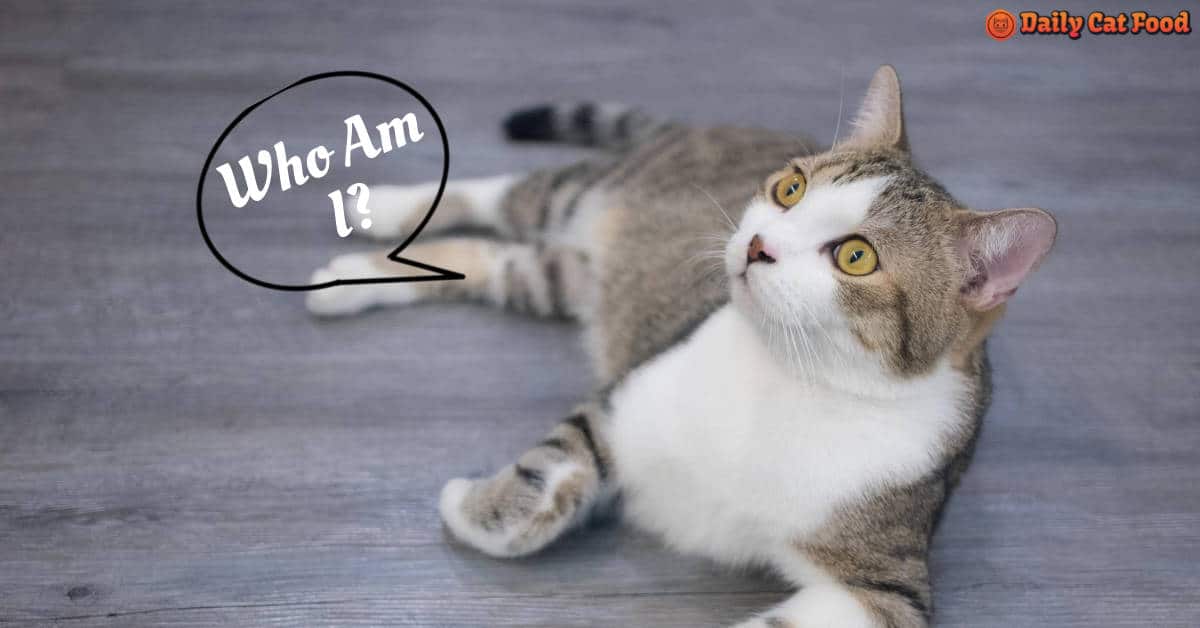
No, your feline friend are carnivores, not omnivores as is the case with dogs.
Cats are obligate carnivore, which means that they eat only meat.
However, these days they have been accustomed to consuming commercial cat foods that are high on plant protein.
As a result, certain essential nutrients, lean protein, and vitamins they require are obtained through natural means, such as plants.
This rising trend for vegetarian cat food may indeed prove to be beneficial. Is it possible for cats to survive on a vegetarian diet? The answer to the question is, it depends.
In order to better understand this aspect, let's discuss the specific health and balanced food needs of your cat.
What Are The Essential Healthy & Balanced Cat Diet Requirements?
A cat's nutritional needs are quite different from those of dogs and humans.
Hence, it is important for your cat’s diet to include all the vitamins and minerals that are necessary to keep them healthy and happy.
Everything from their digestion, to their teeth and tails is made to work in harmony with a diet based on meat.
It even includes the proteins and essential nutrients that their digestive systems can make and produce on their own.
Some proteins, carbs, and nutrients are regarded as essential, which means that they must be received through diet, whilst others are considered non-essential, which means that they may not be provided via diet.
Your cat's ability to synthesise these nutrients by decomposing or processing other nutrients in the body gives them a competitive advantage over other animals.
Let's look at the essential nutrients required for your cat.
Taurine Amino Acid
Taurine and arachidonic acid has an important role in the metabolism of your cat.
Taurine is a naturally occurring sulfur-containing amino acid.
A sufficient supply of taurine is required for your cat to maintain healthy heart and eyes.
It is also required for the production of bile that assists in the digestion of fats and proteins.
The natural source of taurine is meat such as chicken, fish, and eggs.
In order to consume taurine while following a vegetarian diet, it is necessary to consume synthetic taurine.
In order to defend the vegan diet, the vast majority of additional essential amino acids may be supplied from plant sources.
For instance, Arginine is abundant in meat, however, it can be supplied in tiny amounts from plant sources such as legumes and grains.
It is possible that the nutrients and their digestibility may differ depending on the source.
However, a balanced diet of plant materials can cater to your cat's nutritional requirements for various proteins and essential nutrients.
Omega Fatty Acids
It is vital for both animals and humans to consume omega fatty acids as it is an essential fat for the body.
It is necessary to consume fats to maintain regular physiological processes such as muscle growth and development, hormone generation, and cell cycle progression.
The bulk of these fatty acids can be derived from plants that are rich in antioxidants.
Omega fatty acids can be found in a variety of plants, including sunflower, flaxseed, as well as canola oil etc. However, there is a problem.
All plant-based sources of omega-3 fatty acids do not provide the essential fatty acids required.
Some are best obtained by the consumption of fish or through fish oils, while others can obtained through the consumption of plant and plant oils.
DHA (Docosahexaenoic acid) is a good example. [2]
Cats can process DHA from a fatty acid known as Alpha-Linolenic Acid or ALA, which is abundant in plants and can be obtained from them. However, only around 20% of the ALA eaten by the cat can be converted into DHA effectively.
This suggests that dietary supplements will continue to be necessary for your cat.
Despite the fact that this omega fatty acid is mostly derived from seafood and certain types of fish oils however, it can also be obtained in traces in few species of marine fungus and algae.
Synthetic Nutrients
As some elements can't be obtained from plants and plant oils, how can a plant based raw diet provide vital nutritional requirements for your feline companion?
Here's where the usage of synthetic nutrients can be extremely beneficial. A synthetic ingredient is often used in the pet food industry.
In most cases, it is required for a properly processed pet diet such as frozen food or canned foods. These are regarded as complete and nutritionally balanced meals.
In most circumstances, synthetic nutrients deliver comparable quantities of nutrients to their food or natural counterparts. However, this is where things get a little complicated.
After being processed and digested, some man-made nutrients, despite appearing to be similar to their diet counterparts, in theory, may not be exactly the same as their food counterparts.
When it comes to synthetic nutrients, there are several considerations to be kept in mind. Many processed vitamins, proteins, and minerals are obtained from industrial by-products, such as petroleum. However, they are regarded safe by the medical community and government agencies.
In addition to metals such as lead, this group is also likely to contain carcinogenic preservatives such as BHT or BHA.
There are a number of synthetic nutrients obtained from regions with problematic ingredients and food safety requirements. Many man-made nutritional supplements do not identify where the ingredients in their products are acquired from.
Dietary vitamins, animal protein, and minerals may be more easily digested and absorbed than those obtained via supplements.
They are more digestible as a result of the fact that they are coupled with organic components that promote digestion, such as bioflavonoids as well as terpenes.
Natural amino acids can be more physiologically accessible than amino acids synthesised in a lab, although it's possible that synthetic amino acids are less so. As in the scenario of taurine, which may only be gotten naturally through the consumption of meat, a processed alternative for the original product is not a satisfactory substitute.
Is It Possible For Cats To Completely Eat A Plant Based Diet?
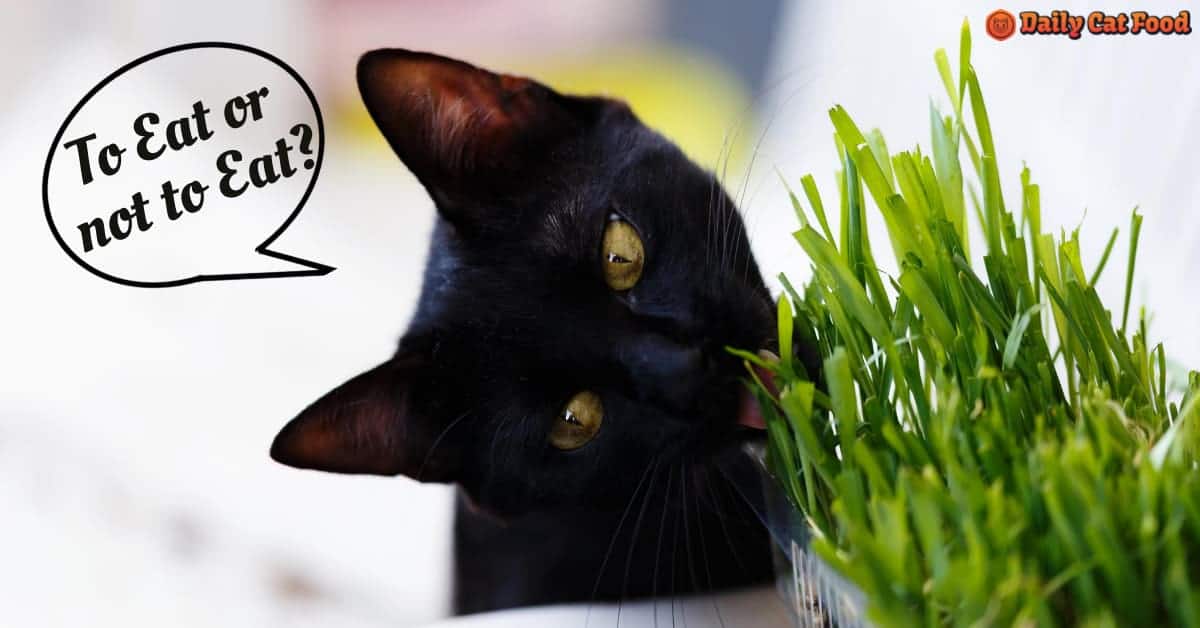
Yes, but it takes time and patience. A cat's digestive system is not designed to handle a plant based diet. You will have to slowly introduce them to it.
Some people claim that it takes about 4 weeks for their cat to adjust to a plant based diet. I believe that most cats do not like the taste of vegetables and fruits.
There are a few exceptions though, such as the Russian Blue cat.
According to AAFCO, it is possible to meet the essential nutrient requirements for cats by giving exclusive plant-based components and processed nutrients. [3]. After comparing and contrasting the nutritional profiles of both plant as well as meat-based diets, we find a great deal in common.
According to the researchers, there isn't much of a nutritional difference between meat-based and plant-based formulas. They both us synthetic ingredients.
However, the meat based business draws negative implications as its operations includes the killing of animals as well as the generation of greenhouse gases. This makes a convincing case, however I decided to take a different approach and see how it played out.
The comparison indicated that plant-based diets can be comprehensive and balanced in the similar way that some pet foods based on meats are. But I did discover one big problem in the study that was on the quality of food that was utilised.
In terms of nutritional value, the diet based on meat that was used for comparison was only average at best.
The big part of the nutritional thesis relies on offering the most suitable balance of all the natural food components in order to deliver the highest level of nutrition possible to your specific feline companions.
While we do not commonly encounter vegetarian or vegan diets that meet our essential nutritional requirements for cats, we do see many low-cost diets such as meats that fall short of our expectations as well. In conclusion, the food you feed your cat should be healthy and nutritious.
It should be low in salt, sugar, and preservatives and high in fiber. It should also be low in carbohydrates and calories.
Commercial Cat Food
Commercial cat food comes in various forms, each with its own unique ingredients.
Dry kibble is made of grains and proteins, while canned food contains more meats and fats. Wet food, usually sold in cans or pouches, is the most nutritionally balanced and recommended by many veterinarians.
In addition, there are various types of commercial cat food, such as organic, natural, and grain-free.
The pros and cons of commercial cat food must be considered when selecting the best diet for your cat. It is a convenient and economical way to ensure your cat receives the necessary nutrition.
Ingredients in Cat Food
Curious about what your feline friend is consuming? Let's take a look at the ingredients found in commercial cat food.
Grains form the bulk of many cat food recipes, including wheat, corn, barley, and rice. While cats don’t have a biological need for grains, they’re often added in as a cheap filler.
Protein is an important part of a cat’s diet and is usually sourced from meats like chicken, beef, and fish. It's important to look for quality protein sources and avoid ingesting fillers like by-products, grains, and plant-based proteins.
Fats, such as chicken fat, salmon oil, and canola oil, help to provide your fur-baby with energy and help keep her coat healthy and shiny.
Vitamins and minerals are added to cat food to make sure your kitty's getting the right amount of nutrition.
Types of Commercial Cat Food
Undeniably, the debate over cats' diets is ongoing. And while cats are known for their ability to thrive on a variety of foods, many pet owners turn to commercial cat food for convenience. But what exactly are the different types of commercial cat food?
The most common types of commercial cat food are wet and dry food.
Dry cat food, also known as kibble, is the most convenient type of cat food as it requires minimal preparation and is easy to store. This type of food is usually composed of grains, proteins, and fat.
Wet cat food is typically composed of more animal proteins and fats and can come in either canned or pouch form. Wet food has a longer shelf life than dry food and is also higher in moisture content than dry food, making it a good choice for cats that may not drink enough water.
Besides wet and dry cat food, there are also freeze-dried and dehydrated cat foods.
Pros and Cons of Commercial Cat Food
Is commercial cat food actually beneficial for cats?
Although store-bought food tends to be more convenient and contain the necessary balance of nutrients for cats’ overall health, there are still pros and cons to consider.
On the plus side, commercial cat food can provide cats with the essential nutrients they need. Most commercial cat food is made with high-quality ingredients, including proteins, carbohydrates, fats, vitamins, and minerals.
The packaging is also designed to make it easier for pet owners to provide their cats with the right proportions of the necessary nutrients. In addition, the food is regulated by the FDA, ensuring that it meets the safety standards for pet food.
On the other hand, commercial cat food is usually made with preservatives, which can cause health problems if consumed in large quantities. Furthermore, while the packaging claims that the food is made with natural ingredients, some brands contain artificial colors and flavors that may not be healthy for cats.
Homemade Cat Food
Homemade cat food is becoming an increasingly popular choice for pet owners.
Benefits of homemade cat food include controlling ingredients and better nutrition. The types of homemade cat food range from cooked meals to raw diets. While homemade cat food has many advantages, there are also pros and cons to consider.
To ensure your cat is getting the right nutrition, recipes for homemade cat food should be balanced with essential nutrients. When preparing homemade cat food, one must be mindful of the balancing nutrients such as protein, carbohydrates, and fat.
Benefits of Homemade Cat Food
It's no secret that a cat's diet is a major factor in its overall health and wellbeing.
Although commercial cat food is a convenient option, many pet owners are turning to the benefits of homemade cat food. From boosting nutrition to tailoring meals to your cat's individual needs, there are many advantages to making cat food from the comfort of your own kitchen.
The Benefits of Homemade Cat Food
When it comes to homemade cat food, the biggest benefit is that pet owners can customize the ingredients to fit the needs of their feline companion.
For instance, cats with sensitive stomachs can benefit from more easily digestible foods, while cats with allergies can benefit from recipes made with alternative proteins. In addition, homemade meals are often fresher and more nutritious than store-bought options.
Making your own cat food also allows owners to have control over the quality of the ingredients. It's possible to select organic, high-quality ingredients that are free from additives and preservatives.
Types of Homemade Cat Food
Putting aside the convenience of simply buying commercial cat food, there are several benefits to making your own cat food. From providing your cat with the freshest ingredients to being able to customize the flavor to your cat's preferences, the options are endless. But what types of homemade cat food can you make? Let's take a look!
One of the most popular options for homemade cat food is a meat-based diet. This consists of a combination of cooked or raw meats, such as chicken, beef, turkey, or fish.
You can also add healthy fats, such as olive oil, and vegetables like carrots, spinach, broccoli, and kale. This type of homemade cat food can provide your pet with all the protein and essential nutrients it needs.
For cats that may not do well with meats, you can make a vegetarian-based diet. This includes grains such as oats, barley, and quinoa, as well as legumes, nuts, and seeds.
Pros and Cons of Homemade Cat Food
As tempting as it may be to craft fresh meals for our furry friends, it is important to consider the pros and cons of homemade cat food before deciding if it is the right choice for our pet.
On the one hand, homemade cat food offers the benefit of knowing exactly what ingredients are going into our cat’s diet. We can choose to create healthy, balanced meals and tailor them to our cat’s individual needs and preferences. It also allows us to make sure that our cat is getting the freshest ingredients possible.
On the other hand, making homemade cat food can be extremely time consuming and may not provide the same balanced nutrition as a commercial cat food. It is also difficult to guarantee that certain minerals, vitamins, and other essential nutrients are present in each meal.
Before deciding to switch to homemade cat food, it is important to carefully consider the pros and cons and discuss with a veterinarian whether it is the right choice for you and your cat.
Feeding Cats a Balanced Diet
Cats require a nutritionally balanced diet to stay healthy and active.
Variety of ingredients can be used to make sure cats get all the essential vitamins, minerals and nutrients they need. There are different feeding methods to choose from, such as canned food, dry food, or homemade food.
But whichever method you choose, make sure to include a variety of ingredients, such as meat, fish, and vegetables. Additionally, cats also need treats to supplement their diet and keep them motivated. Therefore, it is important to feed cats a balanced diet with the right amount of variety, and the occasional treat.
Nutritionally Balanced Diet
It is essential to provide your cat with a nutritionally balanced diet. In order to ensure a balanced diet, it is important to include all the essential nutrients that cats need.
This includes proteins, carbohydrates, fats, minerals, and vitamins. It is also important to provide a variety of food sources for cats, such as meat, poultry, fish, eggs, and dairy.
Additionally, cats need a variety of vegetables, fruits, and grains. A balanced diet should also include supplements, such as taurine, to ensure optimal health.
Cats require different levels of nutrients depending on their age, lifestyle, and health conditions. For cats that are older, pregnant, or nursing, it is important to provide extra nutrition to ensure that they stay healthy.
It is also important to consult with a veterinarian to determine the best diet for cats with specific health issues.
When feeding cats a nutritionally balanced diet, it is important to use different feeding methods.
Variety of Ingredients
Catering to your cat's culinary palate is essential for a nutritionally balanced diet. It's not just about variety, but the variety of ingredients that make up their meals.
Cats require a variety of proteins, carbs, fruits, and vegetables to remain healthy and fit. Adding different proteins such as minced beef, fish, and chicken to their diet is a great way to give them the essential nutrients they need.
Vegetables like carrots, broccoli, and peas are also an excellent addition, as cats need vitamins, minerals, and fiber to stay healthy.
Fruits such as apples, grapes, and blueberries are also a great way to add some extra flavor and vitamins to your cat's meals.
You can also try adding some grains or dairy products such as yogurt to your cat's diet. For cats who are picky eaters, you can try different feeding methods such as pre-mixing their food or adding some treats. You can also add some spices and herbs to their meals to make them more exciting.
Different Feeding Methods
Changing the way cats are fed can not only provide them with the necessary nutrition, but also keep them engaged and entertained.
For example, instead of filling up a bowl with food and leaving it for cats to eat, try hand-feeding them to create a stronger bond and to make them feel more loved. It also encourages cats to eat slowly and not just gobble up the food.
Another way to mix up their feeding routine is to hide special treats around the house for cats to find. Not only does it provide them with an exciting game, but it also gives them an opportunity to hunt for their food, just like they would in the wild.
Plus, it adds a bit of variety to their diet, as treats can be made with different ingredients.
Finally, if cats are too picky with their food, try offering them a variety of flavors and textures. This can help to ensure they are getting a nutritionally balanced diet, as well as providing them with interesting options for meals.
The Role of Treats
Treats are a great way to reward cats for good behavior, and can also be used to help cats adjust to changes in their environment.
It is important to choose suitable treats for cats, such as crunchy kibble, canned food, or small bits of cooked meat, fish, or eggs. Frequency of treats should be kept to a minimum, as too many treats can lead to weight gain, stomach upset, or other health problems.
Impact of treats on cats’ health should be monitored, and if possible, treats should be given in moderation.
Suitable Treats for Cats
It's no secret that cats can be quite the little treat-lovers. While the occasional treat can be a great way to show your kitty some love, it's important to select suitable treats for your cat to ensure they maintain a balanced diet and optimal health.
The most suitable treats for cats are those that are low in calories, but high in quality proteins. This means that treats like freeze-dried chicken or fish, as well as high-quality canned cat food are the ideal choices.
These options are usually low in carbohydrates and contain the essential proteins, vitamins, and minerals your cat needs.
It's also important to be mindful of the frequency of treats. Treats should be given sparingly, a few times a week as an occasional reward. This will help keep your cat's diet in balance and prevent them from overeating.
It's also important to be aware of the potential impact of treats on your cat's health.
Frequency of Treats
While it is important to provide cats with a balanced diet, treats can still be part of their meals. Treats should be given in moderation and with mindful frequency, since they can have an impact on cats’ health.
It is not necessary to give cats treats every day, however, they should be given as special rewards on occasion. For example, since cats’ natural instinct is to stalk and hunt, rewarding them with treats after they have completed a task or behaved well reinforces the desired behavior.
Most cats enjoy treats, and treating them can help build a strong bond between cats and their owners.
Treats can also be used to help cats take medication, since most cats do not like taking medicine. Treats can be used to distract cats and reward them for taking their medication. The treats should be soft, since cats may have difficulty chewing hard treats.
The frequency of treats should be balanced with a healthy diet, as treats are not a substitute for a balanced diet.
Impact of Treats on Cats’ Health
No matter how much cats love them, treats should not make up a significant portion of their diet. It's important to understand that treats have an impact on cats' health.
Too much sugar, for example, can lead to obesity, diabetes, and potentially more serious health issues. Too much fat can cause pancreatitis. Excess salt can lead to dehydration, hypertension, and even kidney disease.
It's important to provide cats with treats, as it can be a great way to reward their good behavior. However, treats should always be given in moderation and be suitable for cats.
Suitable treats are those that are low in fat, salt, and sugar, as well as free of artificial ingredients, preservatives, and colouring. Variety is also important to make sure cats don't get bored with the same treat over and over.
The Impact of Dietary Changes
The Impact of Dietary Changes is profound and often underestimated. Sudden changes to a cat's diet can have a tremendous impact on their overall health, so it is important to transition cats gradually.
Common issues with dietary changes can include digestive upset, vomiting, constipation, and diarrhoea.
To avoid these side effects, it is important to feed the cat small amounts of the new food mixed with their old food, gradually increasing the ratio over the course of a few weeks.
Once the cat's diet has been transitioned, it is important to be mindful of their feeding habits.
Sudden Changes to Cats’ Diet
Introducing sudden changes to a cat's diet can be a nerve-wracking task for any pet parent. It's important to remember that cats are creatures of habit and may not respond well to drastic changes. Transitioning cats to a new diet should be done gradually to avoid digestive issues and other health problems.
Begin by introducing small amounts of the new food, mixing it with the old food, and gradually increasing the amount of the new food.
By doing this, cats can become familiar with the new food while not completely eliminating the old food. However, sudden changes in diet can still happen. Owners should be aware of the common issues associated with dietary changes.
Cats may have difficulty accepting the new food if it has a different texture or smell. To get cats more accustomed to the new food, it is important to provide them with options. For example, you can offer canned wet food in addition to dry kibble. This can help cats appreciate variety in their diet.
Transitioning Cats to a New Diet
While treats are a great way to reward cats and give them a little something special, it's important to be mindful of sudden changes to their diet.
Transitioning cats to a new diet can be tricky, and can result in common issues like digestive upset, anorexia, and refusal to eat.
To help cats transition to a new diet, it's recommended to very gradually introduce the new food over a period of 7-10 days.
It's also important to pay attention to cats' feeding habits and preferences. Some cats may prefer wet food while others may prefer dry, and some may enjoy a combination of both. Additionally, cats may prefer to eat several small meals throughout the day, rather than one or two large meals.
It's important to remember that cats are creatures of habit and they may take some time to adjust to a new diet.
Making diet changes can be a stressful experience for cats. To help cats adjust more easily, it's important to provide a safe and comfortable place for them to eat.
Common Issues with Dietary Changes
When it comes to dietary changes, cats can have a difficult time transitioning to a new food. Many cats can become picky eaters, refusing to eat their new food and often causing owners to become frustrated.
This can be compounded by the fact that cats have specific nutritional needs that can be difficult to meet.
Common issues with dietary changes may include: cats refusing to eat their new food, weight loss due to lack of nutrition, and an increased risk of developing digestive or urinary tract issues. These issues can be further complicated by cats being more sensitive to sudden dietary changes than other animals.
To help with dietary changes, owners should take their time when transitioning cats to a new diet, introducing small amounts of the new food while gradually decreasing the old food. The transition should take place over the course of several weeks to give cats time to adjust.
During this time, owners should also keep an eye on their cats’ feeding habits and make sure they are eating enough.
Summary of Cats’ Dietary Needs
In conclusion, it is important to consider the dietary needs of cats when deciding what to feed them. Summary of cats’ dietary needs includes protein, fat, carbohydrates, vitamins, minerals, and water.
Cats require high-quality foods that are formulated specifically for them, as their bodies cannot process human food effectively. They should also have access to fresh, clean water at all times.
Taurine, an essential amino acid, is typically supplemented in their diets as cats cannot synthesise it themselves. A balanced diet is necessary to provide cats with the essential nutrients they need to live a healthy life.
The Importance of a Balanced Diet
It is essential to ensure cats receive a balanced diet to maintain their overall health and well-being. Nutritious ingredients, such as proteins, carbohydrates, vitamins, minerals, and essential fatty acids, should be included in cat food.
If cats are not provided a balanced diet, it can lead to deficiencies in essential nutrients or illnesses related to poor nutrition.
Cats need a diet that contains enough protein, carbohydrates, and essential fatty acids to provide them with the energy and nutrients they need for growth and maintenance. The right balance of nutrients helps cats stay active and healthy.
Additionally, providing cats with a variety of foods will help keep them interested and ensure they are receiving a balanced diet.
Cats are not strictly carnivores and can benefit from consuming plant-based foods. In addition to meat-based proteins, cats may enjoy fruits, vegetables, and grains.
This variety of foods will provide cats with essential vitamins and minerals, as well as keep them interested in their food.
Ways to Provide the Best Nutrition for Cats
Thus, providing cats with the best nutrition comes down to ensuring they receive a balanced diet that meets their specific dietary needs.
Foods that are high in protein, such as fish, beef, and poultry, should be the primary component of their diet. Additionally, cats can benefit from the inclusion of vitamins, minerals, and essential fatty acids.
For cats, variety is key. Creating meals that are both nutrient-dense and full of flavor is essential to keep cats healthy and satisfied. Not only can this be accomplished through the inclusion of fresh foods, such as vegetables, but by offering a variety of cat food products that contain high-quality ingredients.
When buying cat food, it is important to read labels to ensure that the product is providing the best nutrition for your cat. The ingredient list should include whole food sources of fats, proteins, and carbohydrates, such as chicken, fish, and vegetables.
Avoiding foods with artificial preservatives and additives is also important.
The Key Takeaway
Keeping the dietary requirement in mind, feeding a vegan diet to your cat may sound like an uncommon opinion.
If the food has all nutritional requirement with proper natural and man-made ingredients, any gap that may occur, can be full filled by an animal products based diet.
But you may think, are they equal in every way? Although I believe the answer is no, it is simply not the question one needs to answer.
I had come to see if cats could be omnivorous, and till now, I am not disappointed.
Despite the fact that we are aware that pet cats are not omnivores, we have determined that a vegan diet can somewhat cater to their fundamental nutritional requirements.
Feeding your cat with a plant-based diet is purely your choice.
If you desire to incorporate a plant-based diet routine into your pet cat's diet plan, I would recommend consulting with your veterinarian first before choosing any product. Most of the cat food manufacturers devote a significant amount of time and effort in integrating the nutrients in their formulations.
However, this may not hold true for every product or cat food recipe you find on the internet. The consumption of an unbalanced diet can have significant long-term implications. Neither meat-based nor plant-based cat foods are exempted from this in any way.
Check out the product details of your pet cat food to ascertain the ingredients. Also, ensure keeping an eye on your cat's health on a regular basis.
Depending on the cat, it's likely that some will thrive on a plant-based diet while others will only survive on a meat-based diet.
Keep in mind that your cat's health and well-being are the most important considerations so make choices that will allow them to live a long and prosperous life.
Common FAQs:
Ans. Omnivores eat both plants and animals while carnivores survive only on meat.
Ans. Most cat foods sitting on shelves these days feature a blend of vegetables, fruits, and meat in an attempt to provide cats with “everything” they need in one meal.
Ans. No, they aren’t.
- Human grade Ingredients
- High proteins and low carbohydrate profile
- Compliance with industry standards
- Protein-rich food
- Help felines lose and maintain a healthy weight
- Supports the cat's skin and fur
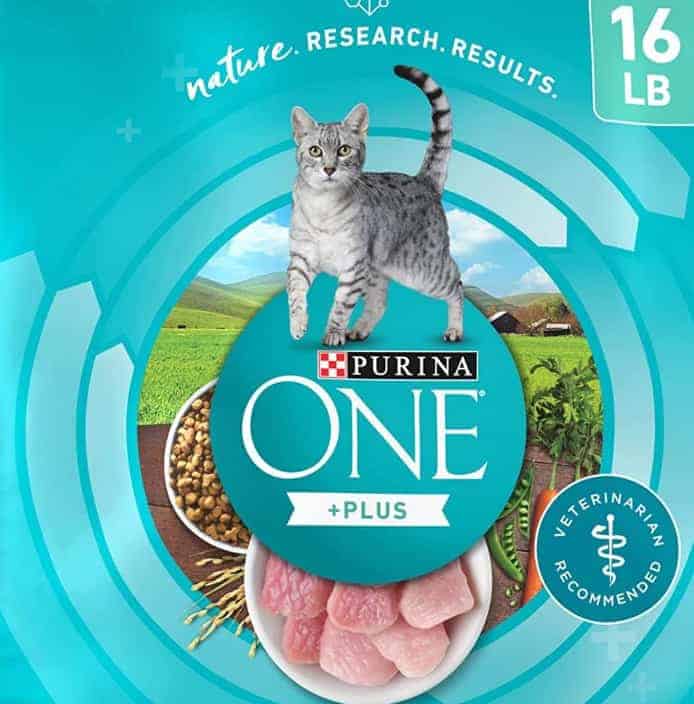
- Reasonably priced product
- Contains a lot of protein
- Support the stomach and skin health


